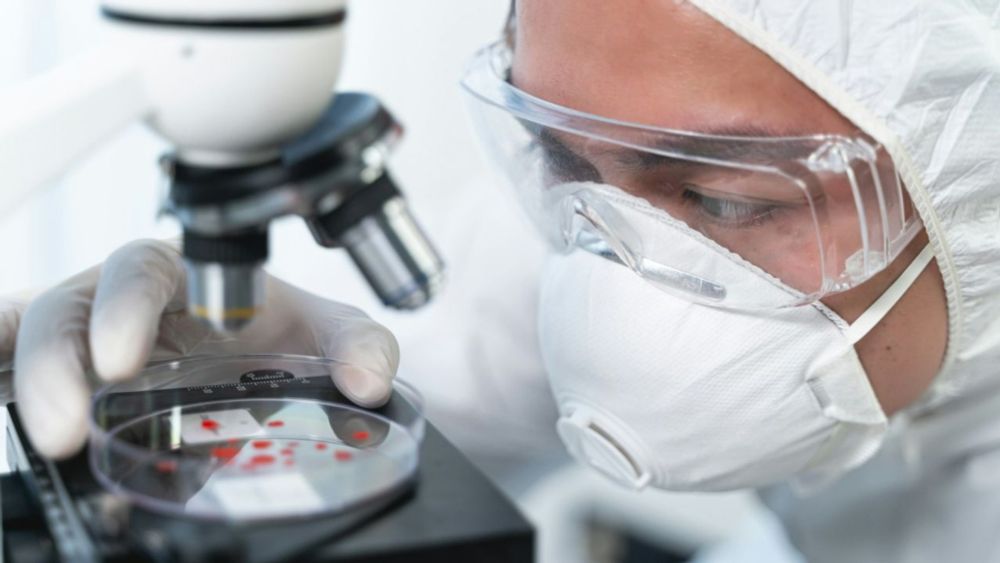As an overall note, people can say shit that sounds good but do absolutely nothing to improve people's quality of life. Take that into consideration on everything you hear.
18.09.2025 19:56 — 👍 17 🔁 3 💬 1 📌 0
For a story in @beingpatient.bsky.social, I'm looking to speak with #neurologists who've had healthy patients come to them because they believed they had Alzheimer's after taking a direct-to-consumer Alzheimer's blood test.
DM me or get in touch at simon (at) beingpatient (dot) com
10.09.2025 18:31 — 👍 0 🔁 0 💬 0 📌 0
Working on a story for @thesicktimes.org about the quality, utility, and risks of exercise trials in Long COVID (and how often they mention/measure PEM). Looking to speak with anyone that's participated in these trials and experienced PEM/other negative side effects as a result.
05.09.2025 19:26 — 👍 34 🔁 20 💬 4 📌 0
Read the full article for more details on why the study may have failed and what it means for the idea that the herpes virus could cause Alzheimer's.
6/6
25.08.2025 12:54 — 👍 0 🔁 0 💬 0 📌 0
The trial used valacyclovir, an antiviral drug for herpes infections. Ultimately, the study found valacyclovir failed to slow cognitive decline in people with mild cognitive impairment (MCI) or early Alzheimer’s over 78 weeks.
5/6
25.08.2025 12:54 — 👍 0 🔁 0 💬 1 📌 0
At the 2025 Alzheimer’s Association International Conference, Dr. Davangere P. Devanand, a psychiatrist and director of geriatric psychiatry at Columbia University Medical Center, presented data from the first randomized clinical trial to test this theory.
4/6
25.08.2025 12:54 — 👍 0 🔁 0 💬 1 📌 0
But so far, supporting evidence has come only from observational studies of electronic health records, and from animal or cell-based lab experiments, which don’t always translate to clinical care.
3/6
25.08.2025 12:54 — 👍 0 🔁 0 💬 1 📌 0
For decades, scientists have speculated that a common infection — the herpes virus — might contribute to, or even cause, Alzheimer’s disease later in life.
2/6
25.08.2025 12:54 — 👍 0 🔁 0 💬 1 📌 0
Thanks for reading - I've followed up with the Ministry to get more info and the number of people affected
24.08.2025 15:25 — 👍 0 🔁 0 💬 1 📌 0

Delayed Disability Benefit Leaves Canadians Struggling, Facing Bank Fees They Can't Afford
Customers banking with TD and BMO are affected but it isn't clear how many or when the situation will be fixed.
Delayed Disability Benefit Leaves Canadians Struggling, Facing Bank Fees They Can't Afford
Customers with TD and BMO are affected but it isn't clear how many or when the situation will be fixed.
My reporting on the #CDB delay.
simonspichak.beehiiv.com/p/canada-dis...
22.08.2025 19:15 — 👍 1 🔁 0 💬 1 📌 0
The vast majority of studies aren't breakthroughs and that's ok! Even negative findings, that might contradict what you expected, can be valuable if the study is conducted well.
11/11 🧵
18.08.2025 17:27 — 👍 2 🔁 0 💬 0 📌 0
Research is exciting - but overhyping and overselling the findings is not helpful for anyone.
Things that might help cells in a dish or mice probably won't translate to people. And biology doesn't always come with a neat, easy-to-understand story.
10/n 🧵
18.08.2025 17:27 — 👍 2 🔁 0 💬 1 📌 0
Some studies only have one or two statistically significant findings. Despite most of the data being negative, and a high likelihood their only positive finding may have occurred due to chance alone, the abstract/discussion may spin it as a success.
9/n 🧵
18.08.2025 17:27 — 👍 1 🔁 0 💬 1 📌 0
A lot of times these studies might propose an elegant biological idea in the introduction or discussion. And they can cite studies that support the idea and make it sound like a sure-thing. But these ideas, not matter how alluring still need to go through validation!
8/n 🧵
18.08.2025 17:27 — 👍 1 🔁 0 💬 1 📌 0
And then we also have multiple studies that find slightly different effects. It is important to see whether other studies looking in other groups of people see something similar.
7/n 🧵
18.08.2025 17:27 — 👍 1 🔁 0 💬 1 📌 0
These are a great way to look for potential things to test. But these studies come with a lot of confounding factors, like socioeconomic status, that influence the data. Often, when the drug or nutrient that reduces the risk in observational studies, it fails in trials.
6/n 🧵
18.08.2025 17:27 — 👍 2 🔁 0 💬 1 📌 0
The other thing to be careful about are observational studies. These often look across electronic health records to see if people who take a certain drug or medication are at a higher/lower risk of a disease outcome.
5/n 🧵
18.08.2025 17:27 — 👍 1 🔁 0 💬 1 📌 0
The other thing to consider is how well the model or a measure represents a pathological process in humans. Are the behaviors or processes researchers measuring something that is validated in the human version of the disease.
4/n 🧵
18.08.2025 17:27 — 👍 2 🔁 0 💬 1 📌 0
If researchers expose mice or rats to a drug or another exposure, it has to be at a physiologically relevant level. Some animal studies use very, very high dosages that don't tell us much about what might be happening in humans.
3/n 🧵
18.08.2025 17:27 — 👍 2 🔁 0 💬 1 📌 0
The vast majority of studies in cells or animal models don't translate to humans.
They might provide interesting insights into disease processes, but only if the model that they're using is validated. What does that mean?
2/n 🧵
18.08.2025 17:27 — 👍 2 🔁 0 💬 1 📌 0
When researchers and press offices overhype their findings it can undermine trust and distort expectations for people living with these diseases.
A few things I learned as a researcher and now a science journalist.
A🧵
1/n
18.08.2025 17:27 — 👍 2 🔁 0 💬 1 📌 0
Great summary! I'd argue they also deviated from their preregistered protocol by including studies with patients who didn't have Long COVID (i.e. acute infection or recovery after hospitalization) www.crd.york.ac.uk/PROSPERO/vie...
16.08.2025 17:00 — 👍 4 🔁 0 💬 1 📌 0
Blood tests in healthy people lead to inconclusive results and false positives. But there are many other lifestyle factors that are more predictive and potentially modifiable -- like getting cardiovascular disease under control.
7/n
15.08.2025 13:19 — 👍 0 🔁 0 💬 0 📌 0
But only 43 percent of people who received a positive test result developed Alzheimer’s.
When you have a large population being tested for something that is relatively rare, you'll have way more false positives (even with a >85% accurate test) than true positives.
6/n
15.08.2025 13:19 — 👍 0 🔁 0 💬 1 📌 0
A study published in March tested how well six different blood biomarkers predicted Alzheimer’s disease in a 2,148 healthy older adults in Sweden. Over the course of 10 years, over 90 percent of the people who tested negative never developed Alzheimer’s or dementia.
5/n
15.08.2025 13:19 — 👍 0 🔁 0 💬 1 📌 0
The other issue: At this stage, testing even when you're healthy even with a great blood test doesn't work.
4/n
15.08.2025 13:19 — 👍 0 🔁 0 💬 1 📌 0
At the end of the study, researchers offered to show them the results of their blood test and brain scan. And by this point, a quarter of those people had changed their minds: With the information now readily available, only 60 percent said yes.
3/n
15.08.2025 13:19 — 👍 0 🔁 0 💬 1 📌 0
Theoretical Physicist.
(She/her/hers)
From Eastern KY.
ph.d, msw. perpetually horizontal. writer, researcher, simmer.
pfp: brown skin lady with dark curly hair wearing a tan dress smiles, seated in wheelchair. banner: same lady holds megaphone wearing a cops off campus shirt at protest
Editor @CanadaHealthwatch.ca
"Obviously not a very good journalist."
Read my newsletter >> know more stuff: canadahealthwatch.ca/newsletter
📁 https://muckrack.com/nicktsergas
Biorisk analyst | Co-Founder Foundry 42
Parent. Interdisciplinary biomedical researcher. Hardline scientist. PhD (Medical Biophysics, Cellular & Molecular Biology). Faculty. New platforms and real-world impact, emphasis on scientific rigour, reproducibility and efficiency. Diverse interests.
Create and share social media content anywhere, consistently.
Built with 💙 by a global, remote team.
⬇️ Learn more about Buffer & Bluesky
https://buffer.com/bluesky
🧬 The world’s biggest study of genetic causes of #MECFS. Launched September 2022. 🧬 decodeme.ed.ac.uk
In-depth analysis of research on myalgic encephalomyelitis/chronic fatigue syndrome (ME/CFS). Formerly known as ME/CFS Skeptic.
https://mecfsscience.org/
san francisco writer, reader, birder, beachcomber
here to meet FT-reading marxists & powecomrades (folks who care about clean air & masks) 😷
writing a book about pandemic & protest
http://brittashoot.com
Associate Professor, University of Toronto. Bloodborne infections, Lyme disease, misinfo. COVID-19 Resources Canada. Defend journalism. Look for the helpers. Opinions mine. 🇨🇦🏳️🌈
co-host @deathpanel.bsky.social | co-author of Health Communism w/ Artie Vierkant (Verso Books) https://bit.ly/healthcommunism | health, debility, class struggle & the state
www.deathpanel.net
www.patreon.com/deathpanelpod
www.beatriceadlerbolton.com
Epidemiologist. AIDS Activist. Dog lover. New Haven.
Reader, writer, Greek chorus. At the intersection of media, government and corruption. We publish a newsletter too.
www.corruptario.ca
ContactCorruptario@pm.me
JordanRoberts.15 on Signal
Postdoc in evolutionary genomics of polyploids at RBG Kew | science & society | opinions mine
Mizzou, Fulbright Belgium, and Michigan State alum. Here because of medicaid, public universities, and pell grants
https://kevinabird.github.io/
Surgeon/scientist promoting science-based medicine and deconstructing quackery. Editor, Science-Based Medicine blog (sciencebasedmedicine.org). X/Twitter & Threads: @gorskon. (He/him)
I cover infectious diseases for STAT (www.statnews.com). 2020 Polk winner. Nieman '11. She/her. I write about H5N1 (in all species), Covid, polio, flu, Ebola, RSV, mpox, STIs. Find me on Signal: HBranswell.01
Public health experts resisting harmful policies, fighting disinformation, and defending public health from within.
Not official CDC—but close enough for transmission.
Proudly #AltGov
Tips? signal altCDC.99, email altCDCtips@proton.me or DM
Chair, Computational BIology and Medicine Program, Princess Margaret Cancer Centre, University Health Network.
Associate Professor, Medical Biophysics, University of Toronto.
Disclosures: https://github.com/michaelmhoffman/disclosure/
Former CDC guy | Calm but Angry| He/him | Medical Science Communicator | Opinion =My own
Infectious diseases & genomics. Immunologist in (voluntary) exile. Minimal sarcasm. Fierce HOA (Hater of Acronyms). Personal account - opinions expressed are my own and not those of my employer.



